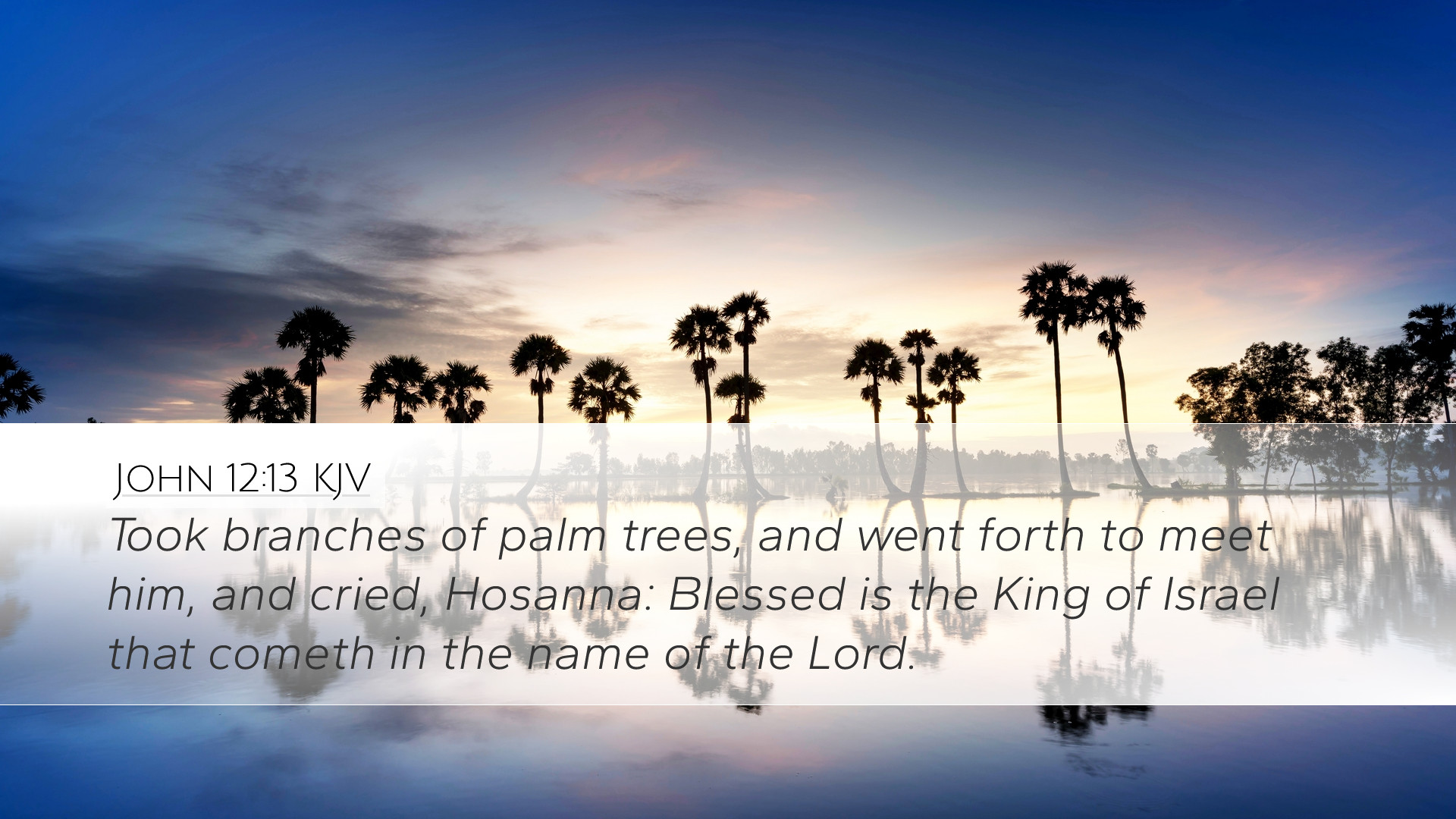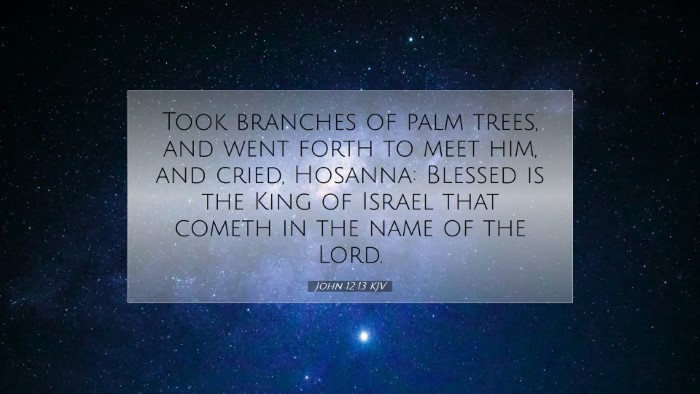Commentary on John 12:13
This verse, John 12:13, is a significant moment in the Gospel of John, capturing the joyous and triumphant entry of Jesus into Jerusalem. It marks the beginning of the Passion Week and is rich in theological significance and fulfillment of scriptural prophecy.
Text of the Verse
John 12:13 (KJV): "Took branches of palm trees, and went forth to meet him, and cried, Hosanna: Blessed is the King of Israel that cometh in the name of the Lord."
Contextual Overview
The passage occurs in the context of Jesus’ final week before His crucifixion. This moment of public recognition contrasts sharply with the rejection He would soon face.
- The Setting: This event takes place just after the resurrection of Lazarus, which stirred considerable excitement and drew great attention to Jesus' ministry.
- The Response of the People: The behavior of the crowd is indicative of their expectations regarding the Messiah.
Exegesis of Key Phrases
"Took branches of palm trees"
Palms represent victory and triumph. According to Clarke, the palm branches symbolize joy and national pride, often associated with the Feast of Tabernacles. The use of palms here is evocative of the public’s desire for liberation from Roman rule and their hopes for a political Messiah.
"Cried, Hosanna"
The term "Hosanna" is derived from Hebrew, meaning "save now." It is a plea for salvation (Barnes). The people are not just shouting a greeting; they are extending a theological invitation for Jesus to fulfill His role as Savior.
"Blessed is the King of Israel"
This title reflects the crowd’s understanding of Jesus as the socio-political deliverer. Henry provides insight that this proclamation recalls the royal line of David, emphasizing the Jewish understanding of kingship as tied to Davidic prophecy.
Theological Implications
This passage carries multiple layers of meaning:
- Fulfillment of Prophecy: The event fulfills Zechariah 9:9, a prophecy that anticipated a humble king entering Jerusalem on a donkey.
- Revelation of Jesus’ Identity: The public acclamation reveals Jesus’ messianic identity, though the understanding of what that means would soon contrast with their expectations.
- Foreshadowing of the Passion: This celebration anticipates the subsequent betrayal, trial, and crucifixion, highlighting the fickleness of public opinion.
Pastoral Applications
For pastors and students of the Word, this passage offers rich material for reflection and sermon preparation:
- Understanding Expectation: Addressing the nature of expectations in the believer’s life and how they often diverge from God’s plan.
- Celebration and Rejection: Exploring the dynamics of public worship and the potential for misunderstanding Jesus’ mission.
- Vindication of Faith: The ultimate triumph of Jesus through suffering reassures believers of His sovereignty, even when circumstances seem dire.
Conclusion
John 12:13 serves as a profound reminder of Jesus’ dual identity as King and Savior. This triumphant entry not only fulfills messianic prophecy but also invites readers into a deeper understanding of faith, expectation, and the cost of discipleship. The insights derived from the public domain commentaries by Matthew Henry, Albert Barnes, and Adam Clarke enrich our understanding and offer vital lessons for application within the church today.


